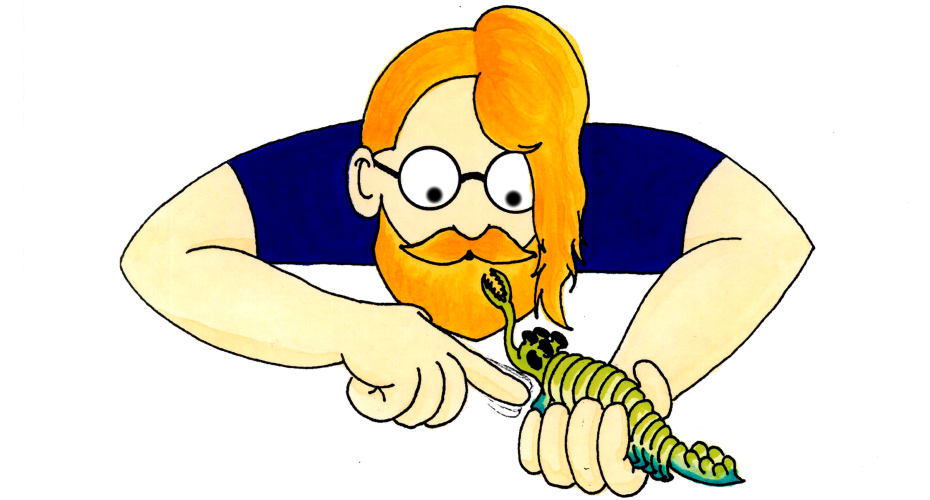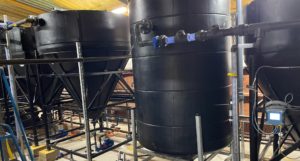New study will help uncover new ways of discovering history’s “lost worlds”

Caricature of Dr Adrian Currie at work by Leonard Finkleman
Philosophy, art and music will be used to explore the science of the deep past’s “lost worlds” as part of a major new study.
A better understanding of the past revealed by archaeology, palaeontology and geology could help to support work to protect today’s fragile environments.
Dr Adrian Currie, is a world leader in the philosophy of the historical sciences of archaeology, palaeontology and geology, has been awarded a Philip Leverhulme Prize by the Leverhulme Trust, given to researchers whose work has had international impact and whose future research career is exceptionally promising. Each prize is worth £100,000.
Our knowledge of the deep past is built from often meagre, incomplete records, and yet historical scientists frequently produce rich, plausible accounts of that past. Dr Currie argues that historical scientists achieve this by adopting creative, speculative ‘methodologically omnivorous’ strategies.
The prize will support Dr Currie’s work to distinguish between different challenges to past knowledge from incomplete records, to what Dr Currie calls ‘lost worlds’: circumstances where the past differs significantly to the present . He will analyse the strategies scientists adopt in these situations, and the consequences this has for the value and nature of historical knowledge.
He will lead a workshop on the science of lost worlds with philosophers, sociologists and historians of historical science, as well as scientific collaborators and run a masterclass for graduate students on the philosophy of the historical sciences. These will be hosted by Egenis, the Centre for the Study of the Life Science at Exeter University, as will be both an artist in residence and musicians in residence.
Artists will create original illustrations of lost worlds, and these, along with a book Dr Currie will produce, will introduce readers to many remarkable times in the deep past, from the mysterious Ediacaran to the Pleistocene’s surprising, diverse menagerie of very human-like hominids, a feature which begs for original depiction.
Dr Currie said: “My interest in the historical sciences is driven by fascination with how scientists successfully generate knowledge in tricky circumstances: where evidence is thin on the ground, targets are highly complex and obstinate, and our knowledge is limited. Examining science’s messier side provides new perspectives on long-standing philosophical questions concerning scientific progress and success, social epistemology, and the nature of scientific tools such as experiments and simulation. This requires a less abstract, more imaginative and more integrated philosophy of science.
“The vast majority of philosophical analysis of historical knowledge has been focused on inferences from contemporary traces to the past, inferring from a fossil to an extinct animal, for instance. But knowledge of the past is also intimately tied to the present: what we know about dinosaurs isn’t simply built upon fossils, but on models of dynamics and patterns built upon observations of currently-existing organisms, ecosystems, and the like. This dependence between what exists now and what we can know about the past raises the possibility of what I call a lost world: when some past target ‘plays by different rules’ to the present.”



